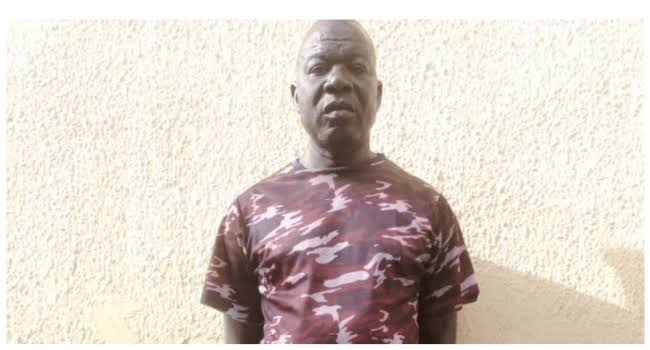By Martin Cole-
A Nigerian court has sentenced a police officer to death for the murder of a lawyer in Lagos, marking the first time a law enforcement officer in the country has received such a sentence.
The decision has been hailed by many as a crucial step in the fight against police abuse, but it also raises questions about the use of the death penalty in Nigeria, where allegations of abuse and extrajudicial killings by the police have been widespread.
The case revolved around extremely cruel police officer Drambi Vandi, who was found guilty by Justice Ibironke Harrison of the Lagos High Court of the murder of Bolanle Raheem, a lawyer who was pregnant at the time of her death.
The incident occurred on Christmas Day the previous year when Raheem’s vehicle failed to stop at a police checkpoint in the town of Ajah, Lagos.
Vandi had consistently denied firing his weapon at Raheem, but one of his colleagues, testifying during the trial, confirmed hearing the fatal gunshot. Vandi retains the right to appeal the verdict.

Extremely evil: Drambi Vandi will be sentenced by hanging Image:ripples Nigeria.com
Justice Harrison pronounced the death sentence with a stern warning, stating, “You will be hanged by the neck till you are dead.” This unprecedented ruling has been widely applauded in Nigeria, a country where allegations of police abuse and extrajudicial killings have been rampant for years.

No nonesense: Justice Ibironke Harrison sentences cruel cop to death Image:Lagosjudiciary.ng.com
The death sentence signifies a significant departure from the norm in Nigeria, where thousands of pending death sentences rarely result in executions.
In order to carry out a death sentence, approval is required from powerful state governors, a process that has seen only two executions take place since 1999, according to Inibehe Effiong, a Nigerian human rights lawyer.
The sentencing of a police officer to death comes at a time when Nigeria remains haunted by the memory of the EndSARS protests, a nationwide movement in 2020 that sought to end police brutality and bring abusive officers to justice.
The protests resulted in a deadly crackdown by security forces, prompting widespread condemnation and calls for accountability.
Many Nigerians have welcomed the death sentence as a crucial step toward holding erring police officers accountable, there are voices within the country arguing for the abolition of the death penalty.
Okechukwu Nwanguma, who leads the Rule of Law and Accountability Advocacy Centre advocating for police reforms in Nigeria, stated, “The death penalty is inhumane, amounts to vengeance, and is prone to error. There is no evidence that it has achieved the objective of creating a deterrence to crime.”
The Nigerian legal landscape with respect to the right to life and the death penalty is markedly contrasted to the United Kingdom, where the right to life is treated as an absolute and non-negotiable human right.
In the UK, there are no legal executions allowed, and the death penalty was abolished in 1965.
In the meantime, the sentencing of Drambi Vandi serves as both a milestone in the fight against police brutality in Nigeria, though may become a topic of debate regarding the use of the death penalty as a means of achieving justice and deterring crime in the country.




